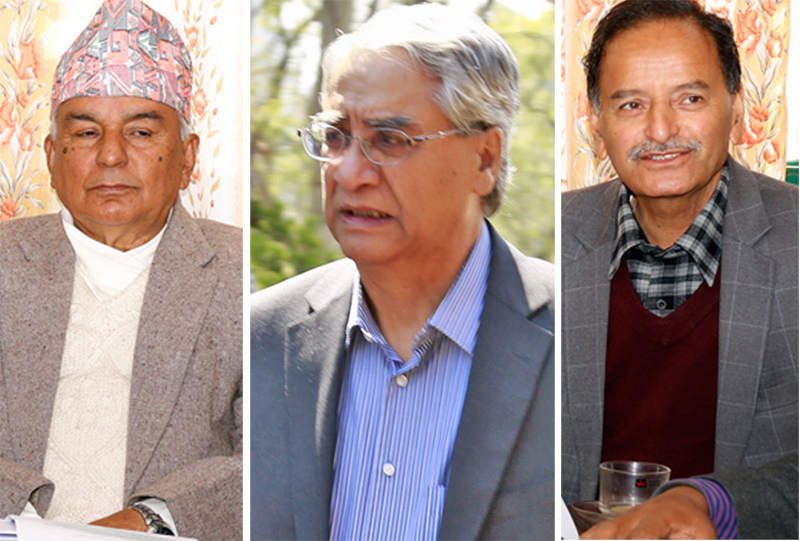NC has three options with regard to selection of office bearers
Kathmandu, October 24
Although the Nepali Congress statute drafting committee claims the draft amendment will be endorsed unanimously, leaders representing rival camps are voicing concern that the establishment faction is trying to further empower the president by giving authority to appoint all office bearers.
The committee has received three proposals — empower the president to appoint all party office bearers, appoint all office bearers through election, and, give continuity to
the existing provision whereby half of the office bearers are elected and the other half are nominated by the the party president.
The committee has not yet revealed which among the three proposals will be finalised. It has only said there is no dispute among panel members.
“We are working to finalise the draft amendment. The draft will be endorsed by the committee unanimously and tabled in the CWC soon,” said the committee’s Spokesperson Ramesh Lekhak.
While leaders from rival factions led by senior NC leader Ramchandra Paudel and Krishna Prasad Sitaula say the president will become autocratic if vested with more powers, leaders representing the establishment faction led by NC President Sher Bahadur Deuba are lobbying for singular leadership ‘to ease the decision-making process’.
The NC had adopted collective leadership in its 12th general convention when late Sushil Koirala was elected party president.
NC leader Shekhar Koirala said the post of party president was in itself powerful and it was not necessary to further empower it.
“NC President Sher Bahadur Deuba commands majority in the CWC. However, he has not been able to give full shape to party bodies. This is not because Deuba is not powerful, but because he has failed to create an environment for dialogue.”
According to Koirala, who becomes president and how powerful the post is, cannot be an important issue. The vital issue is democracy will weaken if the NC is weak.
“I am for a provision whereby all office bearers are appointed through election,” he said. “We are ready to accept whoever is elected president, but the party cannot continue functioning the way it is currently being run.”
However, leaders representing the establishment faction say that although collective leadership sounds ideal, it has only led to groupism and quota system and this has badly hindered the decision-making process in the party.
NC Chief Whip Bal Krishna Khand, who is close to Deuba, said the NC was a democratic party and could not become a cadre-based party. Its only option was to go for singular leadership to function effectively.
“The president has to convince both his supporters and opponents to take a decision. Failure to do this has led to inability to give full shape to the party’s bodies,” he said. “To compete with a cadre-based communist party, we have to allow the president to use personal discretion in running the party.”
Khand argued that this step was not to make the president autocratic, but to bring discipline and make the party robust.
He also said they were for allocating authority not only to the central president but also to presidents of wards, districts and provinces.






